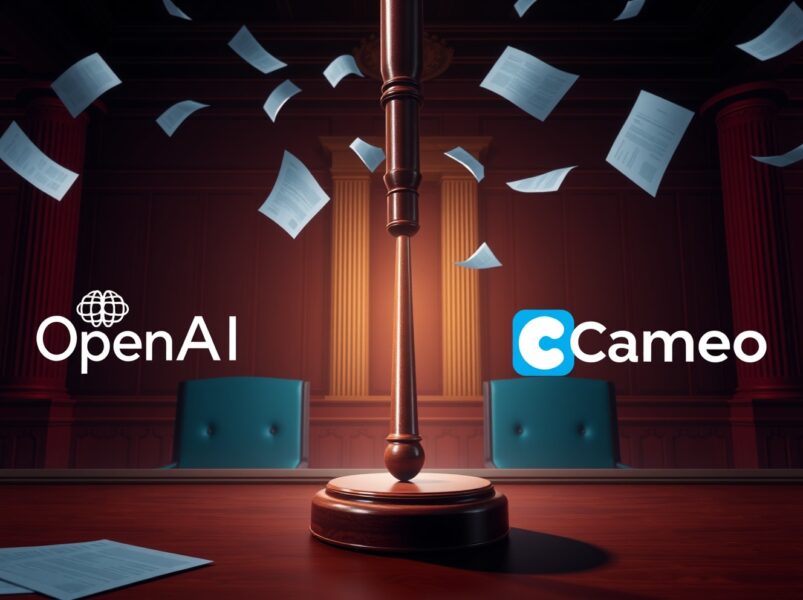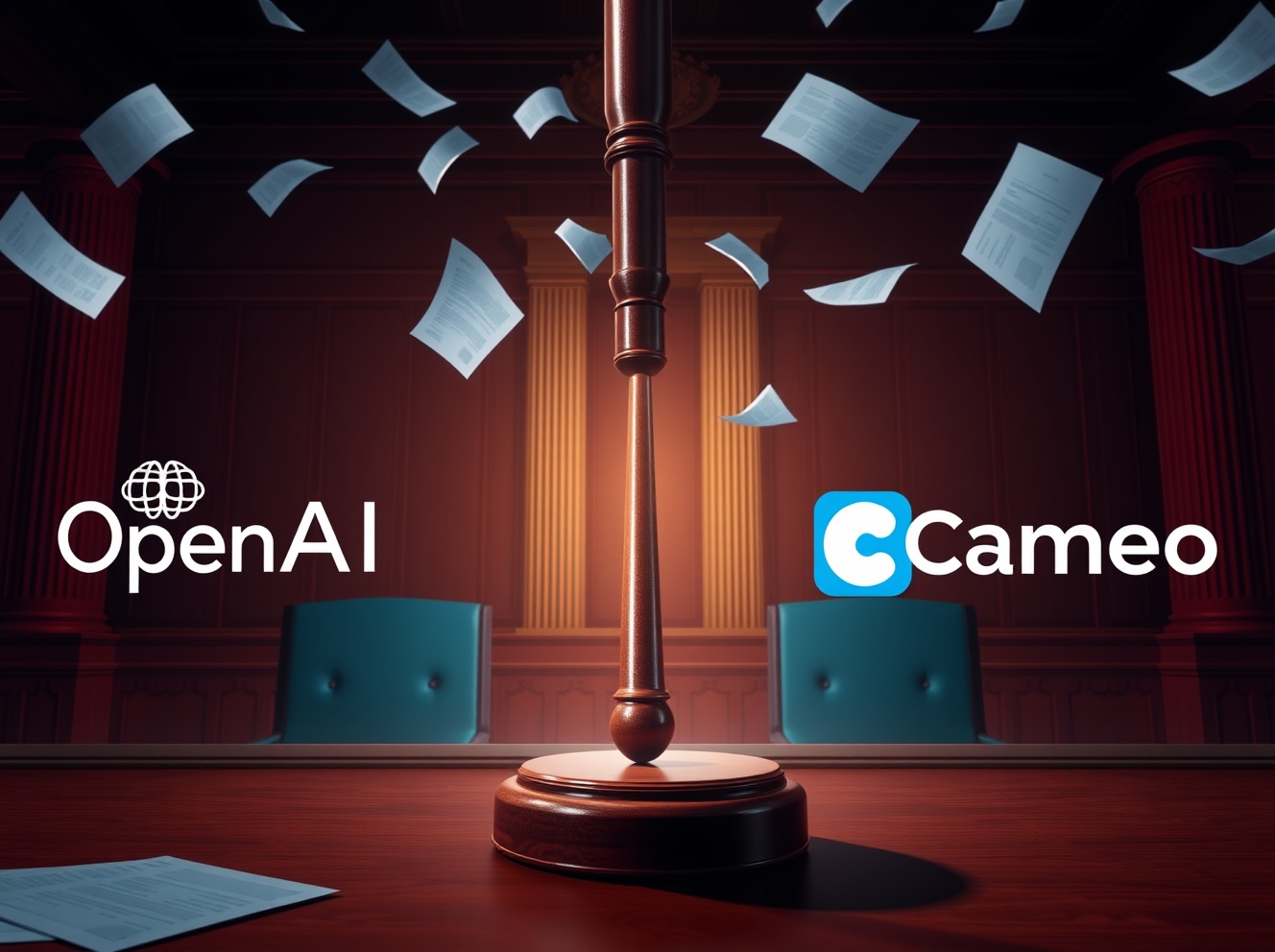Shocking Legal Blow: OpenAI’s Sora App Blocked from Using ‘Cameo’ Feature Due to Trademark Dispute
0
0

BitcoinWorld

Shocking Legal Blow: OpenAI’s Sora App Blocked from Using ‘Cameo’ Feature Due to Trademark Dispute
In a stunning legal development that has rocked the AI industry, OpenAI has been forced to confront a harsh reality: the word ‘cameo’ isn’t theirs to use. The company’s ambitious Sora social app has hit a major roadblock just as it was gaining momentum in the competitive AI landscape.
OpenAI Faces Legal Setback Over Trademark Infringement
U.S. District Judge Eumi K. Lee delivered a significant blow to OpenAI’s plans by imposing a temporary restraining order that prevents the company from using the term ‘cameo’ in its Sora application. The order, issued on November 21, 2025, represents a major legal challenge for the AI giant and highlights the complex intersection of trademark law and emerging technology.
The Cameo Trademark Battle Heats Up
At the heart of this dispute lies a fundamental question: can a company trademark a common English word? Cameo, the popular celebrity video message platform, has successfully argued that it holds exclusive rights to the term ‘cameo’ in the context of digital media and entertainment services. The legal confrontation underscores how established tech companies are protecting their brand identities against new AI entrants.
Key Legal Developments:
- Temporary restraining order effective until December 22, 2025
- Hearing scheduled for December 19, 2025
- Order extends to similar-sounding words and phrases
- OpenAI continues using ‘cameo’ language despite the order
Sora App’s Controversial Feature Faces Uncertain Future
OpenAI’s Sora app launched with its Cameo feature, which allowed users to create deepfake videos of themselves or others with permission. The feature had already faced significant controversy, including intervention from Martin Luther King Jr.’s estate, before this latest legal challenge emerged. The trademark dispute adds another layer of complexity to an already contentious rollout.
Temporary Restraining Order Creates Immediate Impact
The court’s decision represents more than just a naming dispute—it could set important precedents for how AI companies navigate intellectual property rights. The temporary nature of the order suggests the court recognizes the need for careful consideration of both parties’ arguments while preventing potential consumer confusion in the interim.
| Date | Event | Significance |
|---|---|---|
| November 21, 2025 | Temporary restraining order issued | Immediate blocking of ‘cameo’ usage |
| December 19, 2025 | Scheduled hearing | Potential for permanent resolution |
| December 22, 2025 | Order expiration | Decision point for next legal steps |
Industry Reactions and Statements
Cameo CEO Steven Galanis expressed satisfaction with the court’s decision, stating: ‘We are gratified by the court’s decision, which recognizes the need to protect consumers from the confusion that OpenAI has created by using the Cameo trademark.’ Meanwhile, OpenAI maintains its position that no single company should have exclusive ownership over the word ‘cameo.’
What This Means for AI Legal Issues Moving Forward
This case represents a watershed moment for AI companies navigating established legal frameworks. As AI continues to disrupt traditional industries, companies must carefully consider existing intellectual property rights and trademark protections. The outcome of this dispute could influence how AI startups name their features and services in the future.
Key Takeaways for AI Developers:
- Conduct thorough trademark searches before naming products
- Consider potential conflicts with established brands
- Prepare for legal challenges in competitive markets
- Have contingency plans for feature renaming
FAQs
What is the Cameo app?
Cameo is a platform where users can purchase personalized video messages from celebrities and influencers. The company has built a significant brand around its name and services.
What is OpenAI’s position on the trademark dispute?
OpenAI disagrees with the assertion that Cameo can claim exclusive ownership over the word ‘cameo’ and is challenging the trademark claim through legal channels.
How long will the temporary restraining order last?
The order is set to expire on December 22, 2025, at 5:00 PM, unless extended or modified by the court following the December 19 hearing.
What companies and individuals are involved in this case?
The primary parties are OpenAI, creator of the Sora app, and Cameo, the celebrity video message platform led by CEO Steven Galanis. The case is being heard by U.S. District Judge Eumi K. Lee.
Has this affected Sora app’s functionality?
As of the latest reports, the Sora app continues to use the ‘cameo’ language despite the court order, though the legal situation remains fluid.
This legal confrontation between OpenAI and Cameo represents more than just a naming dispute—it’s a crucial test case for how established intellectual property rights will interact with rapidly evolving AI technologies. The outcome could shape naming conventions and trademark strategies across the entire AI industry for years to come.
To learn more about the latest AI legal trends, explore our article on key developments shaping AI features and institutional adoption.
This post Shocking Legal Blow: OpenAI’s Sora App Blocked from Using ‘Cameo’ Feature Due to Trademark Dispute first appeared on BitcoinWorld.
0
0
 Beheer al jouw cryptovaluta, NFT en DeFi vanaf één plek
Beheer al jouw cryptovaluta, NFT en DeFi vanaf één plekVerbind de portfolio die je gebruikt veilig om te beginnen.
